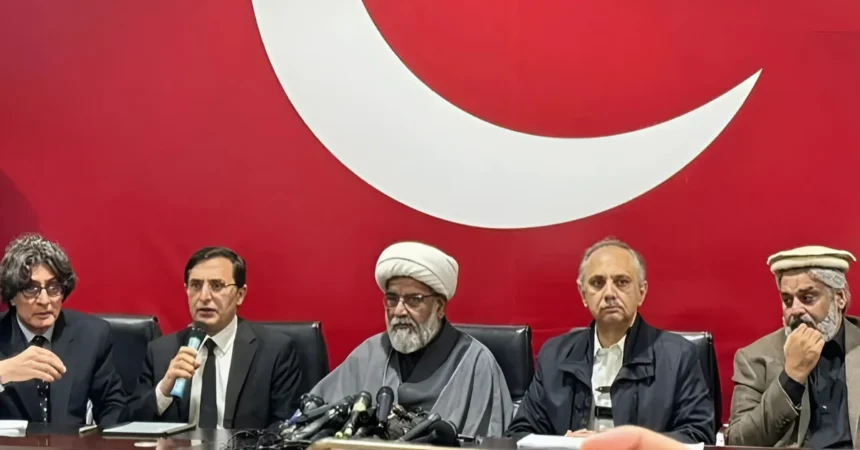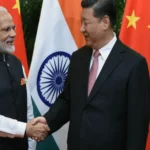Boycott Decision Announced
In a pivotal turn of events within Pakistan’s political landscape, the Pakistan Tehreek-e-Insaf (PTI) has decided to boycott the parliamentary special committee meeting that will appoint the new Chief Justice of Pakistan. This decision follows a late-night meeting in Islamabad where party leaders expressed their dissatisfaction with recent constitutional amendments and outlined a strict disciplinary policy for members who deviated from party lines.
Party Leaders Confirm Boycott
During this critical meeting, PTI leader Sheikh Waqas Akram confirmed that no party member would participate in the upcoming session, which is set to discuss the appointment of the new Chief Justice. The party’s resolute stance reflects an ongoing strategy to dissociate from what it views as questionable political maneuvers within the government. Akram emphasized the importance of this boycott as part of the PTI’s commitment to uphold its principles and policies.
Internal Discord and Disciplinary Measures
The decision to boycott comes on the heels of internal discord, particularly following the voting on the 26th constitutional amendment. This amendment has become a contentious issue within the party, leading to significant friction among its ranks. In light of this situation, the PTI political committee has taken a firm stand against members who voted in favor of the amendment, which contradicts the party’s established policies.
Revocation of Memberships
To enforce party discipline, the political committee has approved the cancellation of memberships for those who voted in support of the amendment. This move aims to ensure that party members remain aligned with the central tenets of the PTI, reinforcing a culture of accountability and loyalty. The decision to strip members of their memberships is not merely punitive; it serves as a stark reminder of the importance of cohesion within the party as it navigates a turbulent political environment.
Show-Cause Notices Issued
In addition to the revocation of memberships, the PTI plans to issue show-cause notices to other members who have been less engaged or have drifted away from the party’s activities. These notices will require members to clarify their positions regarding their affiliation with the PTI and any connections they may have with government officials or other political entities. The outcomes of these notices could have serious implications for the members involved, as the political committee has indicated that their futures within the party will depend on the responses provided.
Chairman’s Statement
Chairman Barrister Gohar has been vocal about the party’s decision to withdraw from the special parliamentary committee. He reiterated that no PTI member would attend the meeting, reinforcing the idea that the party would adhere to the resolutions set forth by its political committee. This level of discipline underscores the PTI’s commitment to its foundational principles, particularly in light of the recent political challenges it has faced.
Composition of the Special Parliamentary Committee
The newly formed 12-member special parliamentary committee is responsible for finalizing the appointment of the new Chief Justice of Pakistan. This committee is set to convene at 4 PM today, where it will deliberate on the names of the three most senior judges of the Supreme Court. A decision must be reached by a two-thirds majority, which will then be forwarded to Prime Minister Shehbaz Sharif for formal approval.
Key Members of the Committee
The committee’s composition is noteworthy, comprising four members from the Pakistan Muslim League-Nawaz (PML-N), three from the Pakistan Peoples Party (PPP), and three jointly from the PTI and the Sunni Ittehad Council. Additionally, representatives from the Jamiat Ulema-e-Islam (JUI) and Muttahida Qaumi Movement (MQM) are also included. This diverse representation suggests a complex interplay of political interests, which could influence the decision-making process regarding the new Chief Justice.
Pressure to Reach a Consensus
As the clock ticks down to the meeting, the pressure is on the committee to reach a consensus by midnight today. Once a decision is made, the selected name will be forwarded to Prime Minister Shehbaz Sharif, who will subsequently present it to the president for formal approval. The appointment process is not just a procedural formality; it is a significant event that will have lasting implications for the judicial landscape of Pakistan.
Significance of the Chief Justice Appointment
The appointment of the Chief Justice is a pivotal moment for the judiciary, particularly in a country where the balance of power is often contested. The new Chief Justice will have the responsibility of overseeing the Supreme Court and influencing judicial appointments and reforms, thereby playing a critical role in shaping the legal and political landscape of Pakistan.
PTI’s Stance on Political Integrity
The PTI’s boycott raises important questions about the role of political parties in judicial appointments. The decision to withdraw from the committee is not only a protest against the recent constitutional amendments but also a strategic move to assert the party’s identity and principles in a highly polarized environment. This stance could resonate with supporters who value a strong opposition to what they perceive as government overreach.
Broader Trends in Pakistani Politics
Furthermore, the PTI’s actions reflect broader trends within Pakistani politics, where party loyalty and discipline are increasingly critical. In a system where internal dissent can lead to fragmentation, the PTI’s firm stance against members who voted in favor of the amendment demonstrates an understanding of the need for unity in the face of adversity.
Implications for Party Dynamics
The implications of the PTI’s actions extend beyond its internal dynamics. By boycotting the committee, the party positions itself as a staunch defender of its values and an opponent of the current government’s policies. This move could galvanize the party’s base, particularly among supporters who feel disillusioned with traditional political practices.
Anticipating the Committee’s Decision
As the political committee prepares for its meeting, the outcomes of the discussions will have a profound impact on the future of the judiciary in Pakistan. The new Chief Justice will not only influence the Supreme Court’s direction but also shape the relationship between the judiciary and the executive branches of government.
Potential Controversies Ahead
The committee’s decision-making process will be closely monitored, with analysts predicting potential controversies depending on the final choice of Chief Justice. The political atmosphere is charged, and any perceived misstep could lead to increased tensions among political parties, further complicating an already intricate political landscape.
Final Thoughts on PTI’s Future
In summary, the PTI’s decision to boycott the parliamentary committee on the Chief Justice’s appointment is a significant political maneuver that underscores the party’s commitment to its principles and the importance of loyalty among its members. As the committee convenes to make a crucial decision that will shape the future of Pakistan’s judiciary, all eyes will be on the political ramifications of these developments.
The PTI’s actions may serve to bolster its internal cohesion in the short term, but they also raise questions about the long-term implications for party dynamics and the broader political landscape in Pakistan. As the clock ticks down to the critical meeting, the outcomes will undoubtedly resonate across the political spectrum, influencing not only the judiciary but also the future of governance in the country.







